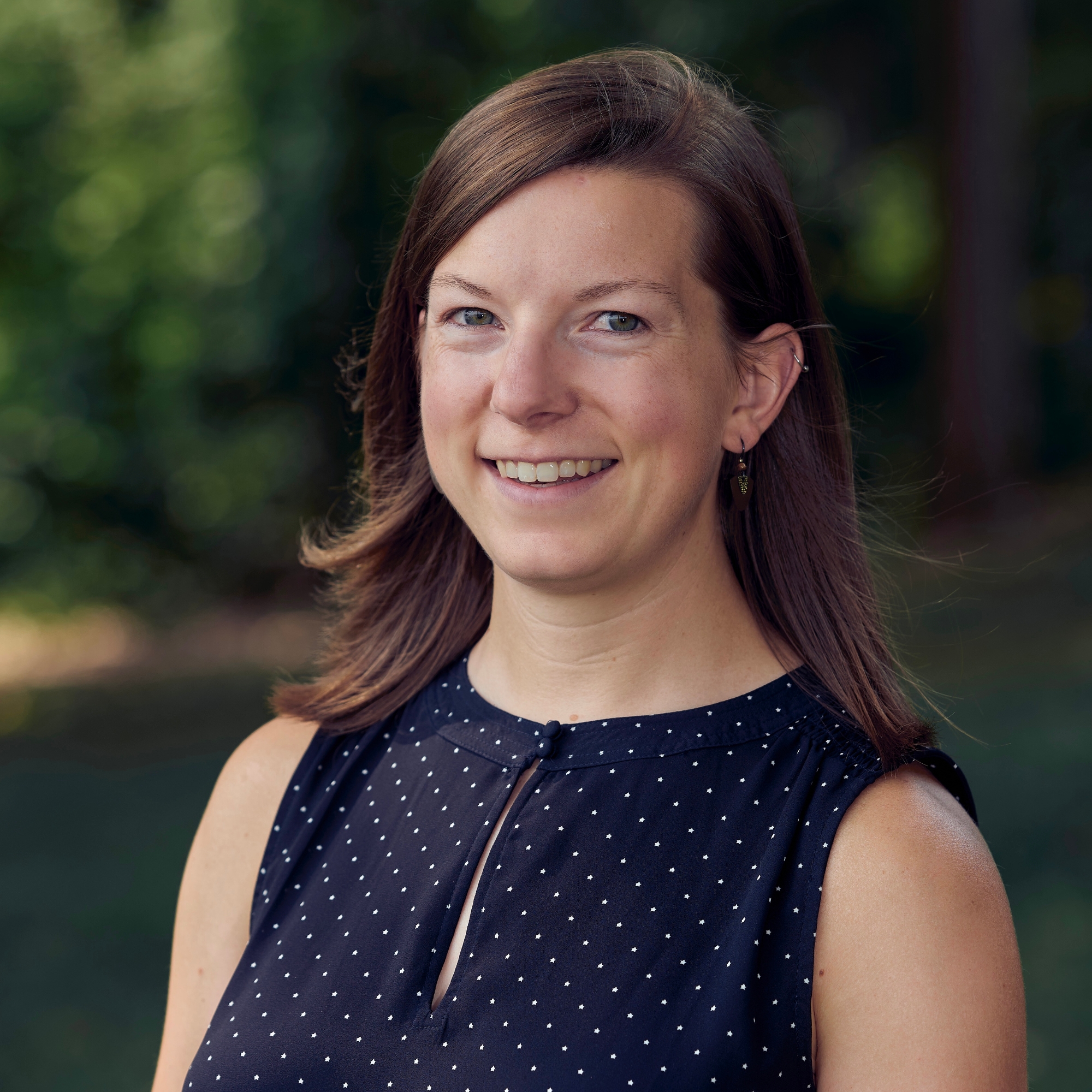Lauren Mullenbach has been teaching in a college classroom since she was a PhD student, but she’s been educating in some capacity since she was an undergraduate student. In college, she ran environmental education programs, and after graduation she worked as a math and science tutor for middle and high school students. Her master’s degree had an emphasis in environmental education, and after completing that degree she was involved in a watershed education program. “It’s kind of been a part of what I do since college.”
In fact, Mullenbach has always been interested in teaching. “I was one of those little kids who wanted to be a teacher, and various other interests came and went.” Since research is a facet of her career that came to her later in her studies and working as a professor here at OU is something that fulfills her lifelong teaching dream.
Mullenbach works in the field of urban environmental justice. “I have two main areas underneath that: first on climate justice and climate equity, and another area on equitable urban greening,” she said. “So, I’m looking at how cities are going to adapt to climate change and whether or not that’s going to disproportionately affect certain populations. And then on the other side, I’m looking at environmental amenities like parks, green spaces, and tree canopies and who typically gets access to those amenities and who is sometimes left out of those decisions.”
She focuses specifically on cities, so far only in the United States. “In the US, the people who are most marginalized are racial and ethnic minorities,” said Mullenbach. “We’re always talking about how wealthy of a country we are, and yet there are so many people that don’t have a grocery store within walking distance or within their bus routes, and they have to go to convenience stores, where the food tends to be unhealthy.”
Many of these research topics intersect on the issue of health. “Having access to a tree canopy or a park space, clean air and clean water, healthy food, a lot of its related to how it benefits your health. Living in close proximity to [these resources] improves your health,” she said. “At the very least providing people with a clean and green environment can help with health disparities.”
Mullenbach came to environmental justice late in her master’s program. At the time, she wondered why the topic wasn’t something that more students were exposed to earlier in their academic careers. But recently, that seems to be changing. “I’ve seen a lot more attention put on environmental justice and social justice in the last couple of years. So that’s really encouraging,” said Mullenbach. “More broadly in the field, I see attention on climate change.”
Mullenbach believes this invigorated interest in social and climate justice stems from the events of 2020, in particular the murders of George Floyd, Ahmaud Arbery, and Breonna Taylor. “That sparked this wave of interest in racism and social justice more generally, so we saw a response to that in academia.” She hopes that though in many ways society seems to have moved on, the interest continues to perforate academic work.
Outside of academia, Mullenbach herself is a marathon runner, a gardener, and a painter, particularly landscapes and nature. She’s looking forward to getting involved in the community as well. “As an academic I’ve bounced around a lot,” she said. “And so, I really hope to get involved in something… that’s not something I’ve had the chance to do before.”
So it makes sense that she advises recent graduates to make sure to focus on life outside of the office. “Don’t make work your life. Pursue your hobbies, have a life outside of work, she says. “Find something that suits your skillset and your strengths.”
For undergraduates, Mullenbach suggests getting involved in research, even if research isn’t a career end goal. “It’s a really cool learning opportunity because you’re really diving in on an issue, you’re learning new skills, you’re meeting new people, and learning how to balance work alongside classes.” She encourages students to get to know their professors and utilize office hours, and to never hesitate to send an email.
By Kathryn Gebauer
Article Published: Tuesday, August 16, 2022
